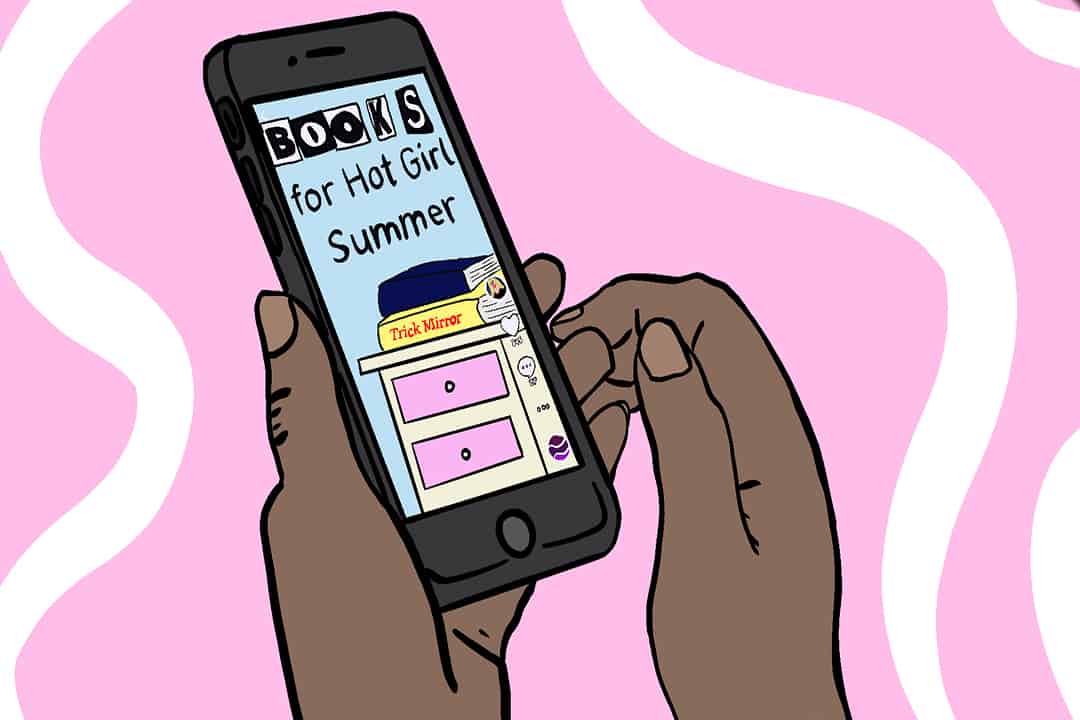The best place to get a book recommendation these days seems to be TikTok. The social media platform has cultivated a community of book lovers whose fervent enthusiasm for their favourite stories can massively boost a book’s sales. The industry is taking note of this. Even mainstream outlets like Indigo and Barnes & Noble have started to curate display tables featuring TikTok’s trending titles.
In addition to traditional marketing venues, authors are also taking advantage of TikTok by creating accounts to promote their writing in the hope of gaining the approval of the all-knowing algorithm. Some savvy authors, such as Olivie Blake, find huge success through TikTok. Originally, Blake thought there was no market in traditional publishing for her novel The Atlas Six — in her own words, “a relatively quiet, think-y fantasy that puts characters before genre.” As a result, she chose to self-publish through Kindle Digital in January 2020.
Then she went viral on TikTok and was proven completely wrong — traditional publishing did want The Atlas Six, and wanted it enough to engage in a major bidding war for the rights to her book. Tor Books republished The Atlas Six in March 2022, to much acclaim. Now, Amazon has bought the rights to produce it as a series. Without those first TikTok views, The Atlas Six would never have found its niche in traditional publishing.
But success is a double-edged sword. Twenty-seven-year old Alex Aster seemed poised to follow in Olivie Blake’s footsteps; after publishing one novel and subsequently parting ways with her agent, Aster informally pitched her young-adult fantasy novel, Lightlark, via TikTok. The video went viral and Aster soon secured a six-figure book deal and film rights.
However, once review copies began rolling out, the backlash began. Readers felt that Lightlark had been falsely advertised and they began to turn on her. Some of the false advertisements may be due to unclear wording: on TikTok, books are often boiled down to bare-boned buzzwords. Since these buzzwords can encompass a vast range of stories, readers may buy a book with false expectations in mind. As an example, Aster said her book had “spicy” — sexually charged — scenes, but what makes something truly spicy will vary from reader to reader.
Other examples are less up for interpretation, though. Some reviewers noted that she posted excerpts of Lightlark on TikTok, but that those lines never appeared in the actual book.
The tide of popular opinion turned against Aster and readers began ‘review bombing’ Lightlark — that is, purposefully giving poor reviews in order to drop the book’s rating on Goodreads. Aster’s audience turned on her with the eager glee of witch hunters; schadenfreude at its finest.
There’s a certain resentment in creative writing circles toward TikTok-trendy authors. The process of finding a literary agent, called querying, can be an arduous one of up to several years. To see people skip the queue seemingly effortlessly breeds bitterness. That’s not Aster’s or Blake’s fault, though; the issue lies with the idea that aspiring authors should already be famous instead of publishers taking risks on unknown writers.
Authorship is supposed to be egalitarian; regardless of race, age, attractiveness, or economic status, anyone can write. But not everyone can sell — especially when appearance becomes a marketing tool. It’s a not-so-secret secret that TikTok’s algorithm is trained to push white and white-passing, conventionally attractive and wealthy people into the limelight. Racialized authors already struggle against systemic racism just to get published. Now, the TikTok algorithm continues to push them further into the background.
In addition, TikTok is not an intuitive platform for talking about books. Literary analysis naturally lends itself to slow-paced, long-form text deconstruction — none of which TikTok’s short, video-based platform is designed for. TikTok’s format often rebukes complex discussion in favour of flashy visuals and lists of tropes. The content of a book doesn’t matter, only the way it’s packaged.
A novel’s merit should not lie in marketability alone. Lightlark and The Atlas Six were sold in part because the authors appealed to an algorithm. Many quality books, especially by racialized writers, won’t get the same chance.
In the end, TikTok is just a tool — a powerful one for those who know how to use it, but a dangerous one for those who get caught on the wrong side of a vengeful virtual mob. It is not the sole arbiter of sales, but it will likely continue to affect trends in the near future.
TikTok emphasizes and exaggerates issues that already plague the industry, such as racism and other biases. Until publishing starts to truly prioritize the unknown, marginalized authors and provide a big marketing budget for their books, and until readers change the way they talk about books, all the problems present on TikTok will persist there and elsewhere.


